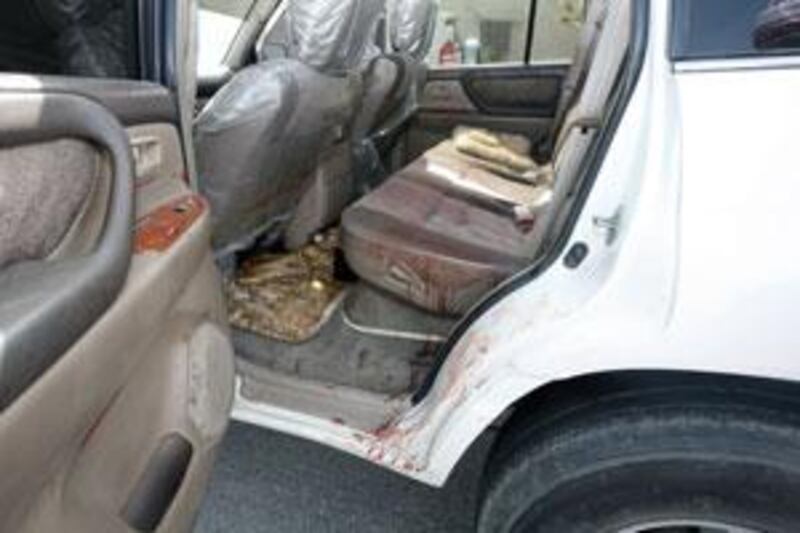DUBAI // The recent stabbing to death of a 13-year-old boy, allegedly by a group of teenagers, has had an "immense" impact on society and public opinion, a human rights group has said. The comment came in a panel discussion held by the Emirates Human Rights Association (EHRA) on the death of Ali Mohammed Hassan.
Ali, an Emirati, was attacked in Rashidiya on March 4. According to Dubai Police, he was stabbed repeatedly and left on the pavement by the other teens, who were apparently looking to confront one of Ali's older brothers and drove off after the attack. Five juveniles have been arrested in connection with Ali's death. Panellists gathered for the discussion at the EHRA headquarters, in Al Qusais, on Wednesday called for more efforts to prevent such crimes.
Zayed al Shamsi, a lawyer and member of the association, who chaired the discussion, said: "This attack has immensely affected our society and public opinion. "In the past, if you do something wrong your neighbour would correct you. Today, if you commit a mistake no one will correct you." Mr al Shamsi said Ali's death had forced authorities to take another look at efforts to prevent juvenile crime, including a review of the Ministry of Social Affairs' youth programmes.
Following Ali's death, the Knowledge and Human Development Authority, which is responsible for schools in Dubai, admitted there were too few social workers in schools and vowed to work solve the problem. Police also said they would take major steps to stop juveniles from carrying knives or other weapons. Reading from a police report, Mr al Shamsi said that on the night of the murder, an officer said he heard a scream outside his house and found Ali lying in a pool of his own blood. He rushed the boy, who was still alive, to Rashid Hospital.
The report said Ali had 11 stab wounds, three in the left side of his back, three in the left shoulder, three in the left side of his chest, one in his stomach and one in his upper chest. A clinical psychologist on the panel said forensic reports suggested the attackers had not intended to kill Ali. "The stabs were random, according to the report. In my opinion, whoever stabbed did not even expect the child to die," said Dr Faiqa Habib.
She said that the families of the accused should not be forgotten. "Imagine the pain their mothers are in," said Dr Habib. She told the gathering that education should begin at home with fathers. "Fathers should spend at least 10 minutes a day talking with their kids one-on-one, without any presence of authority and judgment which instills fear," said Dr Habib. The panellists also criticised the media coverage of Ali's death, saying it had created "fear among families and the public".
Fouad al Awad, the head of the EHRA's media committee, said: "The media played an important role in the coverage of the crime but I ask the media, especially the TV media, to unite and present the right messages to educate and let people acknowledge what needs to be done to avoid such a crime in future." Contacted at the family's home, Ali's older brother, Essa, said the killing had terrified the community.
"There is nobody outside in this area after 10pm. This is a result of the attack," he said. @Email:amustafa@thenational.ae pmenon@thenational.ae






